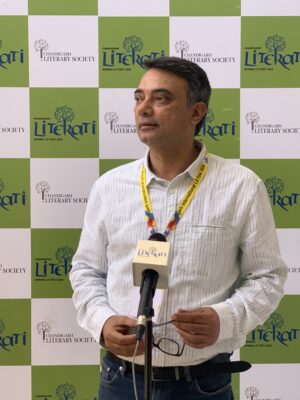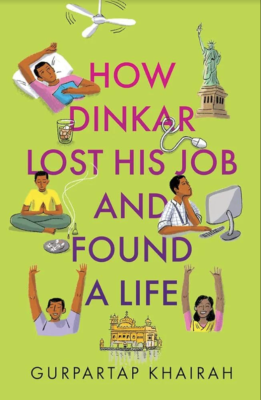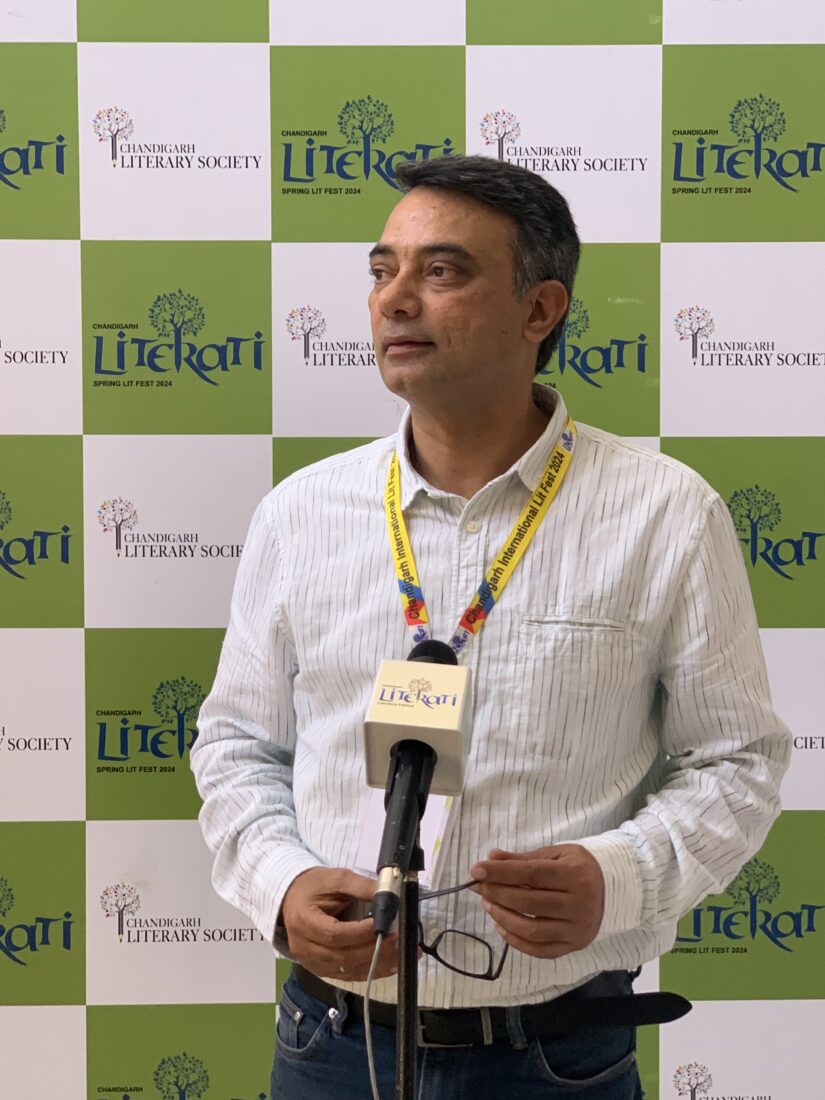
Losing a job can actually be a good thing. It can liberate you from the ‘what-ifs’ of life, nudge you out of your comfort zone, and even help you to find yourself. That’s what happens to Dinkar when he decides to look at his retrenchment as a chance to carpe diem’! The coming of age novel by author Gurpartap Khairah, ‘How Dinkar Lost His Job And Found A Life’ is a breezy and entertaining story that reaffirms the power in perspective to turn your setbacks into opportunities.
Gurpartap Khairah gives credit for his lifelong love for the written word to his mentor, Gulzar saab. With several of his short stories published over the years, Gurpartap also dabbles in poetry. Dinkar is his first novel. We met the author to find out about his writings and more.
Let’s start with the basics. When did you know you wanted to be a writer?
I was in school when I started experimenting with writing. Though the topics were mundane, my perspective caught the eye of my English teacher, Kishore Sir, who encouraged me and prevailed upon my father to let me take up English as a major subject. This encouragement proved to be a catalyst as I went on to write a couple of short stories before the spark slowly petered out. Then came a long gap before I again thought of writing short stories. This time around the ambition was very limited – I would write just one or two stories, get them published and that would be that.
What transpired instead – I wrote a story; it got published; I sent it to Gulzar saab for his review; he was most encouraging, and that reignited the spark. It was as if the floodgates had opened. As more stories got published; more good reviews came in. These almost got accepted at a couple of literary agencies abroad but at the last minute they backed out with the excuse that the market for short stories was very limited. The stories were then picked up by the Red Ink Literary Agency in Delhi, and the first collection was published in 2014 as an anthology, with two other writers: Obsession – Eternal stories of Life and Death.
Your novel, ‘How Dinkar Lost His Job and Found A Life’, how much of the main character is inspired from your life?
When you write in the first person, readers assume that it’s almost an autobiography but it need not be. Of course there are elements from the author’s life – there are bound to be- views, opinions, perspectives, experience, likings etc – but if you end up writing your own story you might as well write an autobiography! Why cloak it as fiction?
Dinkar’s interests – in music, books, RD Burman, movies – are all mine. So are his (mis)adventures in America but he’s an ass and I’d like to think of myself as less of an ass than him!
What motivates you to sit at your desk every day to write? And what do you do when the writing isn’t coming easy and you hit the writer’s block?
I really do not have a fixed routine of writing. When I am caught up in an idea, I write whenever I have time. The plot, situation, dialogues brew in my mind, and I let it all stew until I hit my laptop and pour it all out. I never force myself to write; I write only when I know in my mind/heart that I am ready to write.
As far as the writer’s block is concerned, I surrender myself to that particular mood and allow it to pass. Even if it is a long drawn-out one, you know it is only temporary and will pass. One should let it pass. There is really no point in making yourself write when you don’t feel like it, for the writing will not be natural; it will feel forced and stilted.
Who or what has had the greatest influence on your writing?
Whenever people ask me about my literary influences, at the risk of sounding risqué, I attribute it to my G-spot!: Gulzar, Graham Greene and Ghalib. I have been an ardent admirer of Gulzar saab’s writing ever since I was a child and this admiration has only grown with time. He has adapted wonderfully to changing times and styles and syntax, which has kept his writing young and youthful. Both Greene and Ghalib continue to astound me with the ways they say things – it is very difficult to say so much in so few words. They are all wonderful writers.

Which is the one book you wish you had written?
The end of the affair by Graham Greene. It is one of the most amazing books I’ve ever read.
As a teacher what do you look for in students’ writing?
A different perspective on something ordinary or a unique idea is what gets my attention every time. So long as the old wine is in a dazzling bottle, I am all for it. And if the wine is fresh and sparkling, that’s excellent. I encourage my students to read extensively, and then write. They usually find themselves stuck where ideas are concerned. I tell them to have patience and let things brew in their minds as it will give them time to figure out how they wish to narrate their story. It is, after all, up to the writer to present something as a comedy or a tragedy. Dinkar’s story, for instance, is full of events that would make for a grand tragedy – he loses his job; his love story ends before it begins; he is hounded by his mother; he has no independence – yet I chose to write it as a comedy. So, a different take on something ordinary is very important.
Your advice to aspiring writers?
Anyone who wishes to become a writer should first be a reader! You cannot write unless you have read. You don’t have to read Shakespeare or Hardy or Galsworthy; you can read anyone who engages you as a reader. Contemporary writers like Chetan Bhagat and Durjoy Dutta and Ravinder Singh are fine if that is what you wish to write. This will help you find your own genre and voice and style and vocabulary. God help the person who wishes to start writing with very limited vocabulary! And God help the reader too!
What’s the best compliment you received for your book ‘Dinkar’.
That it is like me! Fun and easy to be with!
Finally, how do you like your coffee?
I am more of a tea person but I love the smell of freshly brewed coffee! There’s a romantic story right there, if ever there was one. But if I am to have coffee, I take it without milk and a little bit of sugar. For what would life be without a little sugar!


A delightful interview in which the writer talks freely about his approach to writing. He gives practical and easy-to-follow tips to upcoming writers. He doesn’t mystify the writing process and seems to suggest that with good planning, hard work, and lots and lots of reading, one can bloom into a good writer.